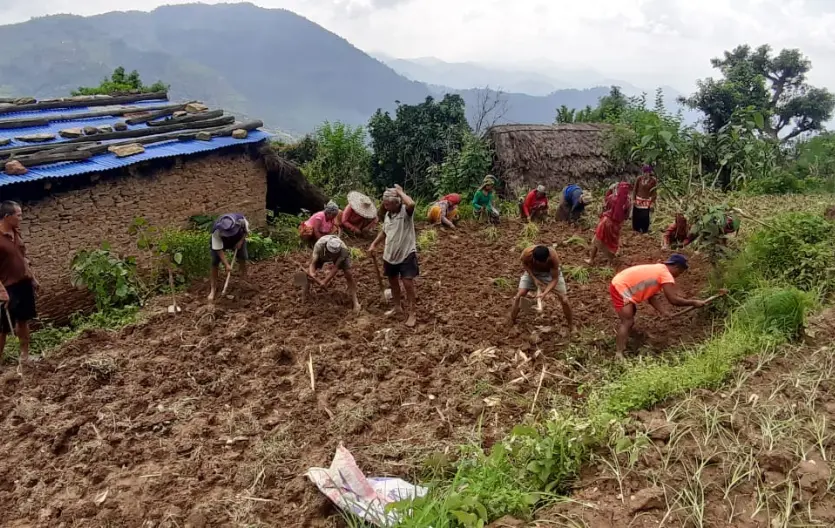My name is Purna Kumari Magar and I am part of the Magar indigenous community in Nepal. As a member of this community, my life depends on the land and other natural resources, such as the Seti River. However, with the Tanahu hydroelectric project , our way of life is threatened. The project, funded by the Asian Development Bank , the European Investment Bank and the Japan International Cooperation Agency, will cause 60% of Magar residents to lose their farmland, 11,000 trees and nine crematoria. It is a threat to our homes, our governance rights, and our access to resources. Most of us were not consulted, which represents a violation of our rights as indigenous peoples to give free, prior and informed consent to a project that affects our territories.
The hydroelectric project is a false climate solution, as it is a major source of methane, among other greenhouse gases. It also exposes us to greater vulnerability to the impacts of the climate crisis, such as floods and droughts, making it risky and unreliable. On the other hand, if the river’s natural ecosystem were allowed to thrive naturally, it would produce all sorts of climate benefits, such as carbon mitigation and a healthier water cycle.
As a Magar people we have a symbiotic relationship with nature, we only take what we need. For generations we have conserved and transmitted traditional ecological knowledge related to the collective conservation of forests and rivers. The women of the Magar community plant broom along steep hills and sandy banks to prevent soil erosion and landslides, retain soil nutrients for vegetation to regrow, and improve water quality and availability. Taking us off these lands will affect our ability to pass this knowledge on to future generations to mitigate and adapt to the climate crisis. Forests and consequently water resources will be saved if indigenous land rights are respected.
We ask the Asian Development Bank , the European Investment Bank , the Japan International Cooperation Agency and governments to stop financing hydroelectric projects in our territory. These projects contribute to the climate crisis and violate indigenous rights. The funds must be redirected to the real and gender-just climate solutions that we, the women and girls of the Magar indigenous community, are applying.
INWOLAG was created by women lawyers from the indigenous community of Nepal and offers advocacy, livelihood support and legal services to survivors of gender-based violence. In 2015, INWOLAG warned that the Magar indigenous community would be affected by the Tanahu hydroelectric project and began reporting on its negative effects. INWOLAG trains the community and local women so that they can defend the rights of the community. It also helps the community to file complaints with watchdogs independent of AsDB and EIB. INWOLAG is a grantee partner of the Tewa and Mama Cash women’s funds , which are part of the Global Alliance for Green and Gender Action . You can follow the work of INWOLAGhere and learn more at the links below.
- Documentary on the rights of indigenous peoples and hydroelectric power
- People Affected by the Nepal Hydroelectric Project: Non-Compliance with Free, Prior and Informed Consent
- Nepal: Magar indigenous community protests against Tanahu hydroelectric project, claiming lack of proper information and consultation

